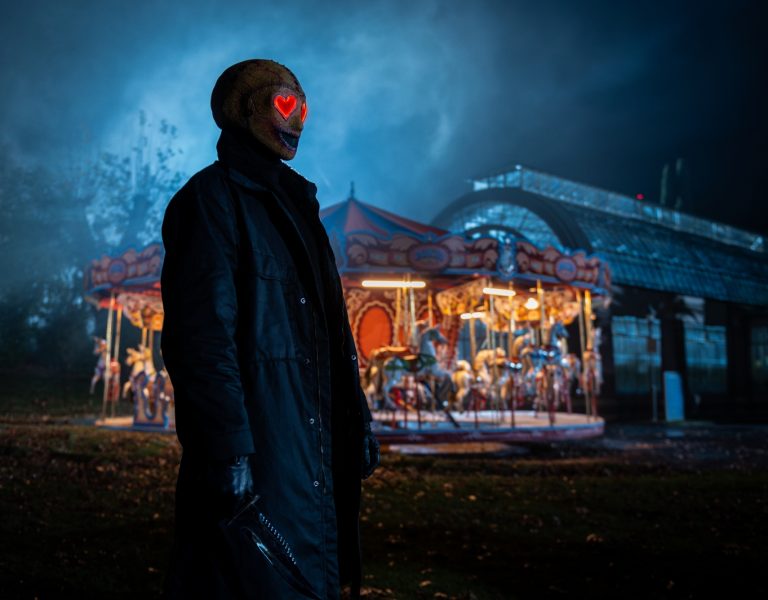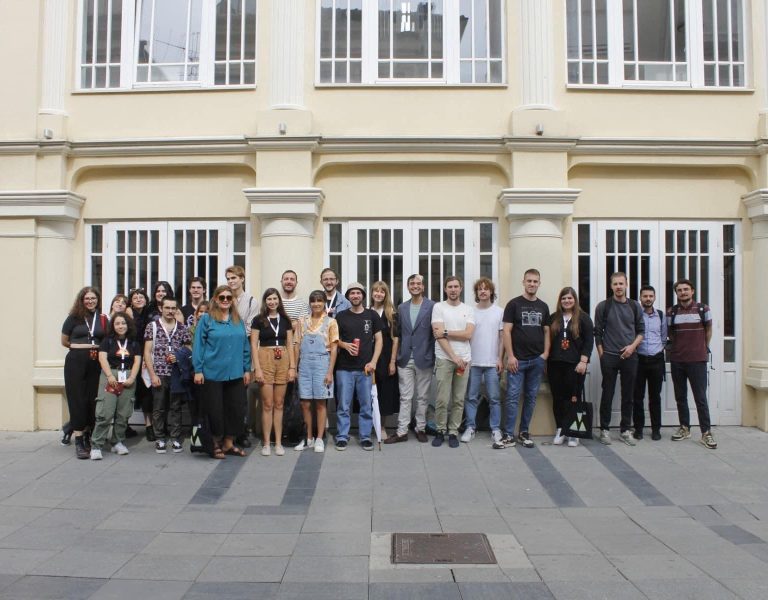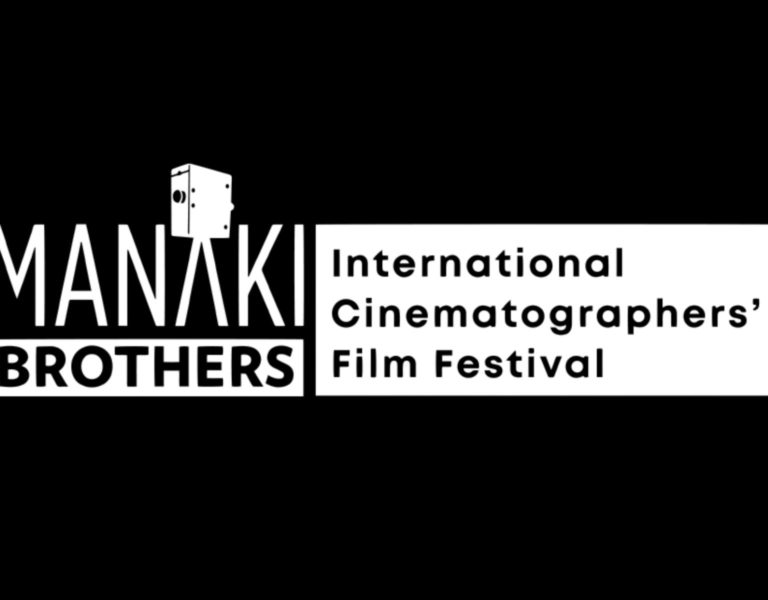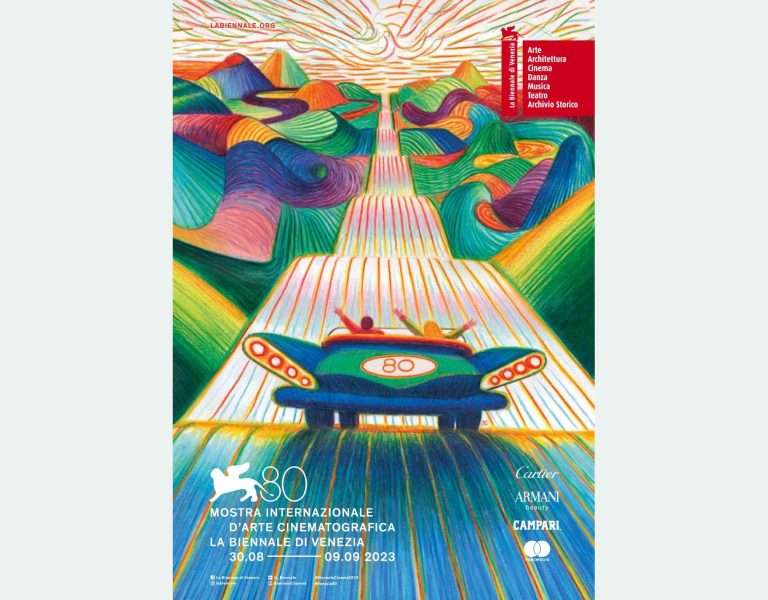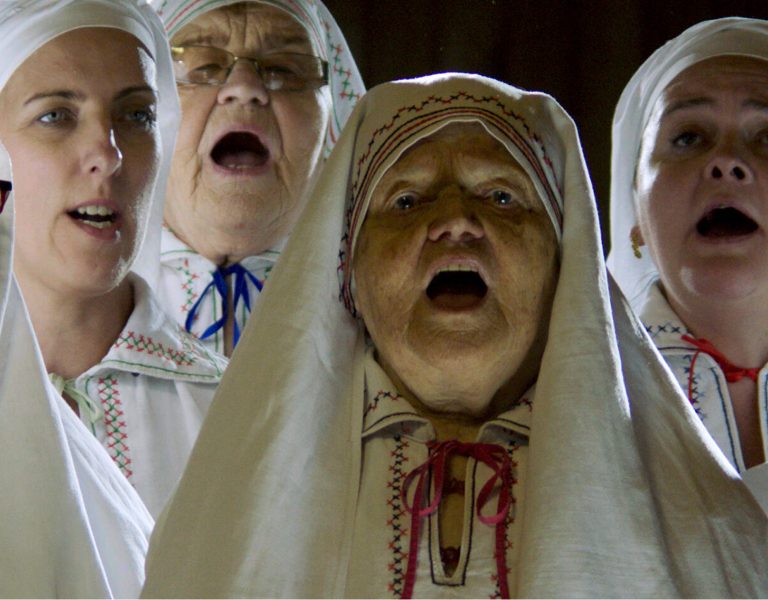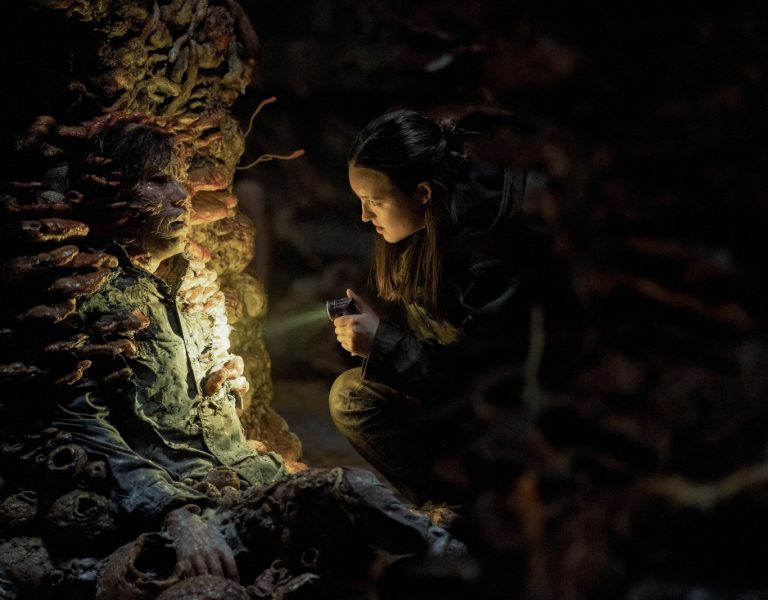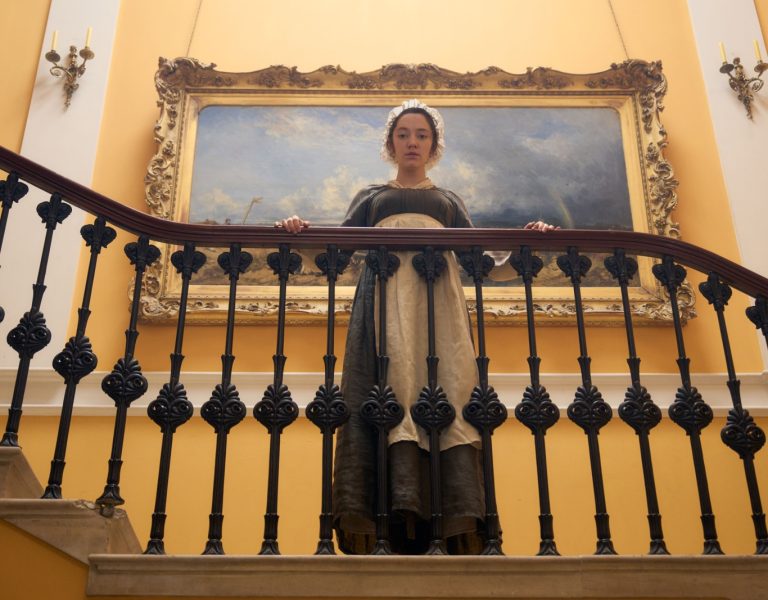A personal touch
Lars Pettersson FSF reflects on a busy week in postcard-perfect North Macedonia, where the Manaki Brothers Film Festival draws filmmakers from across Europe for a week of cinematic celebration.
You may have heard rumours, from those lucky enough to attend, that this year’s edition of the Manaki Brothers Film Festival was the best one yet. And to paraphrase Mark Twain; those rumours are not greatly exaggerated. From 23-29 September, the 44th edition of the festival was held in the picturesque town of Bitola, North Macedonia. We were treated to a full week of seminars, workshops, masterclasses, and endless film screenings, all served up in a small town that could have been plucked right out of a fairytale, with the spires of the numerous mosques reaching for the sky and the spectacularly mountainous landscape as a hazy blue backdrop.
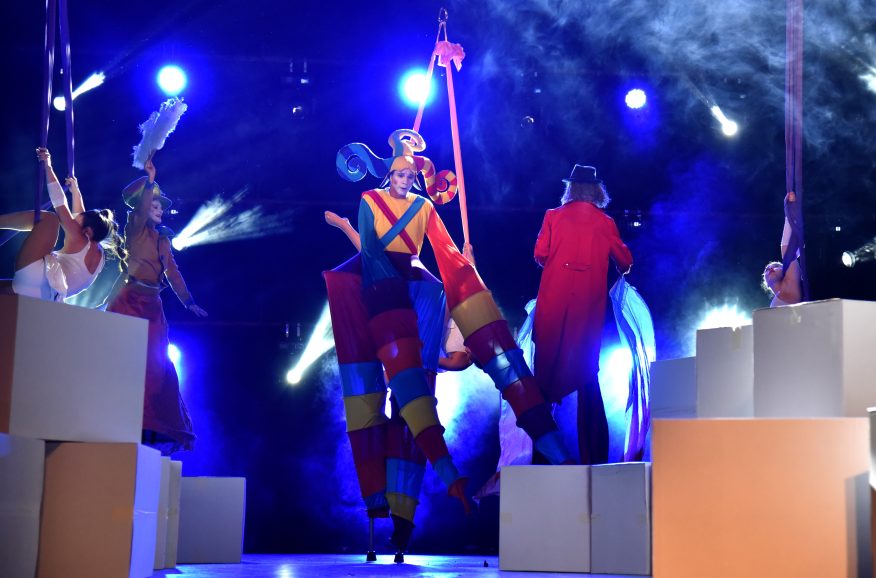
On Saturday 23 September the opening ceremony of the festival was held at the Bitola Cultural Centre and Simeon Moni Damevski, the director of the Manaki Film Festival, announced Peter Biziou BSC as the winner of the Golden Camera 300 for Lifetime Achievement. Circus artists performed their daring acrobatics from the auditorium’s ceiling and on stage a children’s choir performed the music of Pink Floyd from the film The Wall (1982), which of course Peter Biziou BSC lensed. And the evening’s festivities were not confined to the Cultural Centre auditorium, as everywhere in Bitola there were people dancing, blowing fire, and performing in the streets.
Cinematographer Elen Lotman ESC is often heard saying “the objective of the IMAGO Diversity and Inclusion Committee is to make itself redundant.” She along with Bojana Andrić SAS, Ula Pontikos BSC and Dragana Jovanović brought us a roundtable discussion, which opened the Sunday programme, about the current situation for women cinematographers.
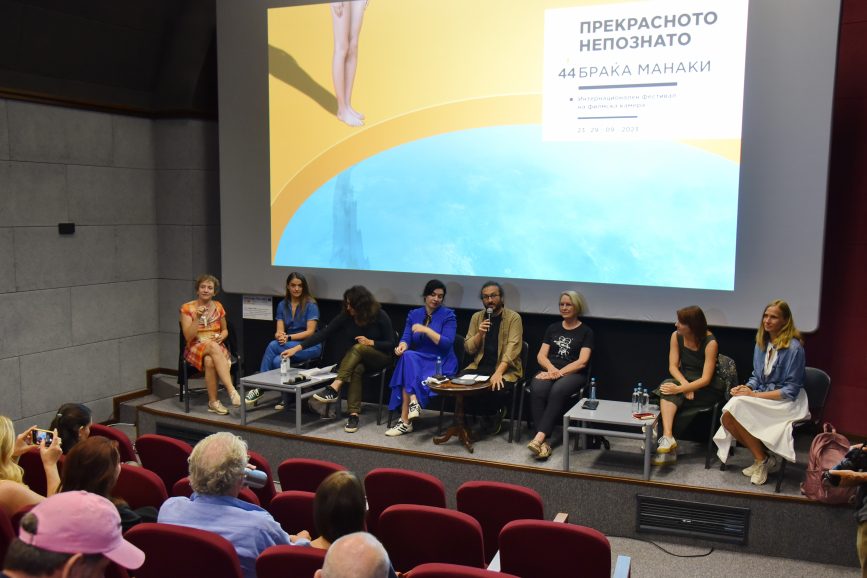
One of them, here at the festival representing Spain, is Teresa Medina AEC. She feels progress regarding equality is coming along far too slowly. “Women cinematographers are all too often only supported verbally by the industry,” she explains. Regarding the Manaki Festival itself, however, she is most enthusiastic. “The thing I love about the Manaki Festival is that here, the actual festival director comes and greets you when you arrive. That establishes the tone of what this festival is all about.” I can only concur with this sentiment as my rapport with the festival team, and especially Katerina Gabunija, the festival coordinator, has been wonderful.
As the week rolled on, Monday offered a roundtable discussion with Lawrence Sher ASC and friends, reminiscing about memorable on-set blunders, as well as a screening of Alan Parker’s Mississippi Burning (1988) which yielded Peter Biziou BSC an Academy Award. And that provides us with a nice transition to the main event of Tuesday; a masterclass featuring Biziou, moderated by Nigel Walters BSC.
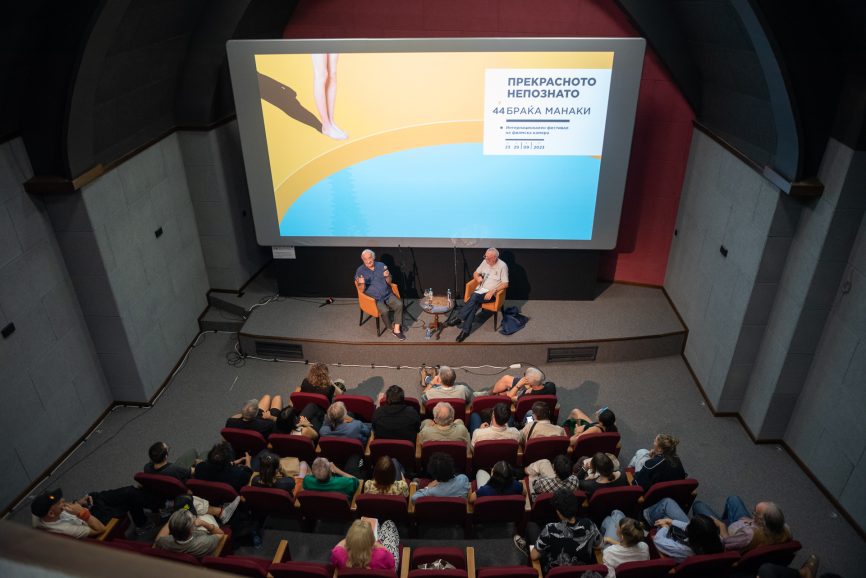
As an audience we were in for a treat, as Biziou and Walters examined a remarkable career encompassing projects as diverse as The Truman Show (1998) and Life of Brian (1979) and ranging from the stark crime drama In the Name of the Father (1993) to the charming utter lunacy of Terry Gilliam’s Time Bandits (1981). We learn that Biziou decided early on to support himself by making commercials in order to gain freedom to choose the feature films he wanted to work on – always selecting the best scripts out of the projects offered.
Wednesday brought us a workshop with Anastas Michos ASC GSC temptingly called ‘Champagne taste with a beer budget’. I asked Anastas if he could sum it up for the benefit of our readers. “The concept is,” Anastas mused, ”that no matter what size budget we’re working on, we’re always striving for more and we’re always working within constraints. And that I think is a strength that sparks us to think outside the box, forcing us out of our safety zone, and that’s often where magic happens. A practical example could be limiting yourself to two primes. That’s an artistic challenge at the same time as it saves money for the production.”
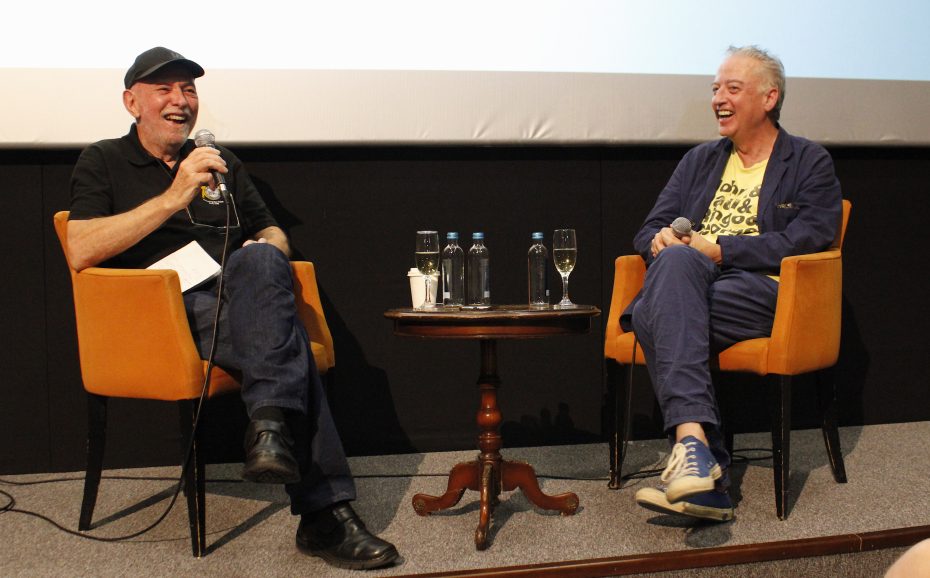
A screening of Joe Wright’s Atonement (2007) prepared us for Thursday’s Masterclass featuring Seamus McGarvey ASC BSC ISC. Once again, we are in Nigel Walters’ capable hands, and once again we are all winners, as both gentlemen are fantastic raconteurs. One question from Walters brings forth from McGarvey a 20-minute answer ripe with insights, memories, life lessons… There’s a fantastic rapport between the two and the ambience varies from solemn moments where we are almost moved to tears, to hilarious on-set stories. The hilarity goes pretty far at times and realising he’s being recorded, McGarvey pleads, “Oh, you’re going to have to edit this out, please! What happens in Bitola stays in Bitola
Friday evening brought the grand finale of the entire festival, a closing ceremony held in the Cultural Centre. It had been delicately hinted to me earlier that my casual T-shirt-and-shorts outfit won’t be appropriate for this, but fortunately I’ve brought along more formal clothing as well for this trip. Winners galore are announced throughout the proceedings, among them Cevahir Şahin and Kürşat Üresin who won the Golden Camera 300 for About Dry Grasses and Chengma Zhiyuan who took home the Silver Camera 300 for Only the River Flows. McGarvey was honoured with the Camera 300 Award for Outstanding Contribution to World Cinematic Art and received a warm and prolonged ovation when he took to the stage to accept it.
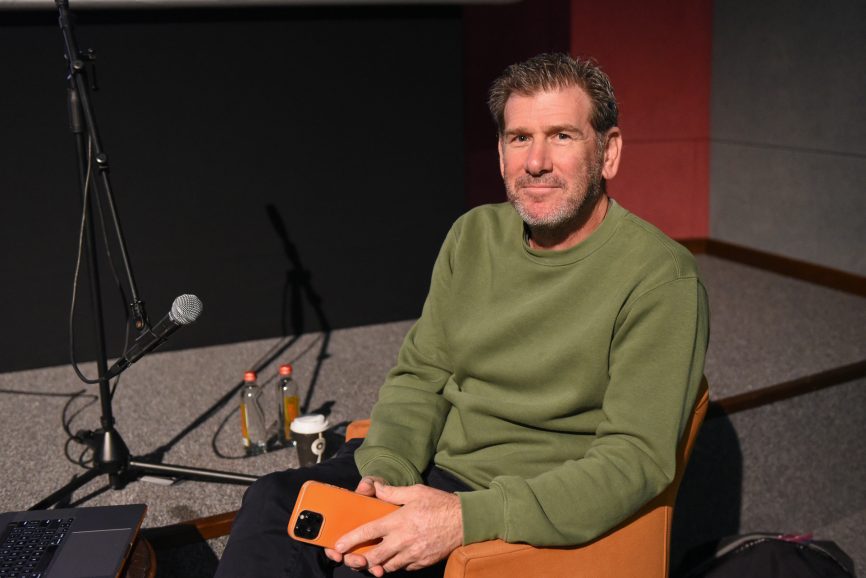
But more was in store for us, as the awards ceremony was followed by the world premiere of the Macedonian feature film Lena and Vladimir starring Tony Naumovski and Sara Klimoska, directed by Igor Aleksov and featuring fine cinematography by Dusan Kardalevski. As the movie ended the entire cast and crew got up on stage and received thunderous applause.
And as if this wasn’t enough, some of us were invited afterward to a massive wrap party with hundreds of guests at the nearby historical Military Academy building, thoroughly ensuring that the festival would remain a warm memory for all who participated.




